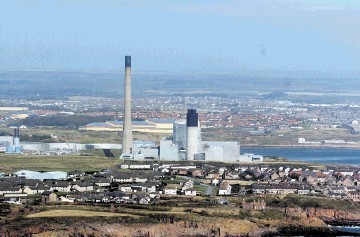
The UK’s Energy Technologies Institute (ETI) has chosen a consortium led by north-east consultancy Pale Blue Dot Energy to identify future potential carbon dioxide (CO2) storage sites beneath the North Sea.
The 12-month project is being delivered by the ETI and funded with up to £2.5million from the Department for Energy and Climate Change (DECC). The aim is to identify five credible carbon capture and storage sites on the UK Continental Shelf.
It will progress the appraisal of selected storage sites towards readiness for “final investment decisions”, de-risking these stores for potential future storage developers.
The institute says the project will make use of CO2 Stored – the UK’s CO2 storage atlas – which was created from the ETI’s UK Storage Appraisal Project.
This is now publicly available and is being developed by the Crown Estate and British Geological Survey. The results will be shared with the CCS community at the end of the project.
ETI’s CCS strategy manager Den Gammer said: “Our previous projects have provided information about hundreds of potential stores under the seabed off the coast of the UK.
“This project will initially pick a “Top 20” of stores from the CO2 Stored atlas and then from these select a final five which will be analysed in much greater detail to demonstrate that they are suitable, secure and viable for storing large amounts of CO2.
“This project will build knowledge and with that confidence in sites based in UK waters and provide an economic case for their further development.
“The project will include the investigation of stores which extend the use of capacity and infrastructure engineered in the £1billion DECC CCS Commercialisation competition, off the coasts of Aberdeenshire and Yorkshire.
“Doing it now will help to reduce the risks to potential investors and encourage industry to develop capture projects onshore.”
Pale Blue Dot has been working on CCS since 2007. Its partners for this project include CO2DeepStore, Axis Well Technology and Costain.
The ETI has highlighted the importance of CCS and bioenergy to the UK’s future energy system in a report published earlier this year which said that the UK can implement an affordable transition to a low carbon energy system by 2050 but that decisions taken in the next decade will be critical.
According to the ETI’s analysis, if either of these technologies do not feature it would at least double the cost of delivering climate change targets from around 1% of GDP to 2%.
Another way of looking at it is the value of CCS or bioenergy to the UK energy system is £200billion each and if neither are developed it is really difficult to see how the UK would be able to meet its climate change targets.
Recommended for you
